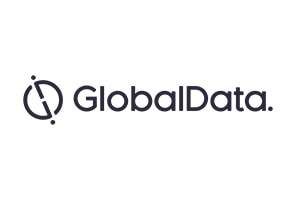The healthcare sector is rapidly going through a transition phase, with Internet of Medical Things devices revolutionising health IT infrastructure such as electronic health records (EHR) and big data analytics platforms, enabling doctors and physicians to provide personalised care services.
The healthcare industry is witnessing a rise in IoT applications in the areas of remote patient monitoring, real-time health systems, smart medication dispensers, patient data collection and analysis, and connected inhalers and ingestible sensors, among others.
In the last year, the healthcare industry has witnessed the launch of various connected devices and a number of partnership agreements with ICT providers to cater to the growing requirement for personalised healthcare services and gain a technological edge.
For example, in June 2017, Vodafone and Smart Meter, a mobile health services provider for diabetes management, collaborated to facilitate global connectivity in Smart Meter’s blood glucose devices via Vodafone’s IoT network. Smart Meter’s iGlucose is a blood glucose measuring device which can record the glucose level using strips. By using Vodafone’s global IoT network, these devices can wirelessly connect to the iGlucose platform, and the results are automatically transmitted to the cloud and shared with the patient’s family and the healthcare team.
Vodafone has provided a customized solution that connects the iGlucose meters and permits two-way communication through the iGlucose platform, allowing caregivers to send reminders and instructions to the patient. The partnership also allows Smart Meter to market its services around the world without having to undertake country-by-country IT integration.
Furthermore, connected medical device manufacturers are partnering with EHR platform providers to integrate their IoT devices with EHR platforms. This has enabled healthcare institutions and doctors to remotely monitor their patients through smart wearable devices using mobile and desktop applications. For instance, in June 2017, Qardio, a smart healthcare solutions provider, partnered with Hint, a direct care administration platform, to integrate Qardio’s smart devices and platform with the Hint Connect platform. This will enable healthcare institutions to distribute Qardio’s IoT devices and wearables to their patients and remotely monitor their ECG and blood pressure through an EHR platform.

US Tariffs are shifting - will you react or anticipate?
Don’t let policy changes catch you off guard. Stay proactive with real-time data and expert analysis.
By GlobalDataFrom a marketing perspective, these partnerships help smart device manufacturers to push their product to large healthcare institutions and assisted healthcare service providers. The setting-up of a digital platform to manage these devices remotely also gives doctors and physicians the ability to provide personalized services and monitoring capabilities. Additionally, the data collected through the digital platforms helps in finding trends, and provide preventive health services. Moreover, with time, as the penetration of IoT devices increases, smart device manufacturers will start integrating predictive analytics interfaces in their IoT platforms to enable a holistic healthcare experience for patients.





